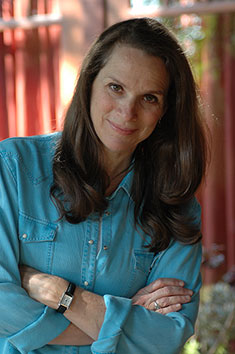published at Goodreads
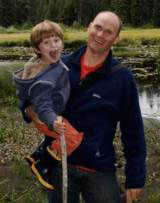 At 41, Anthony Doerr has racked up more literary awards than most authors see in a lifetime. The author of five books—The Shell Collector, About Grace, Memory Wall, Four Seasons in Rome, and, most recently, All the Light We Cannot See—Doerr has been the recipient of four O. Henry Prizes, seen his work anthologized in The Best American Short Stories, and been awarded with both the Rome Prize and the Story Prize. Did we mention the Guggenheim Fellowship, too? Adding to these bona fides, Doerr's new novel, All the Light We Cannot See, the haunting World War II story of a blind girl and an orphaned boy, was selected as a 2014 National Book Award finalist—an honor that Doerr interpreted, in part, as a fashion crisis when Goodreads caught up with him for a phone interview the morning before the awards ceremony in New York City. Interviewer and Goodreads Author Joy Horowitz spoke with Doerr about how his long car rides to school with his mother in Cleveland defined him, how a train ride inspired his new book, and why renting a tux online might not be such a great idea.
At 41, Anthony Doerr has racked up more literary awards than most authors see in a lifetime. The author of five books—The Shell Collector, About Grace, Memory Wall, Four Seasons in Rome, and, most recently, All the Light We Cannot See—Doerr has been the recipient of four O. Henry Prizes, seen his work anthologized in The Best American Short Stories, and been awarded with both the Rome Prize and the Story Prize. Did we mention the Guggenheim Fellowship, too? Adding to these bona fides, Doerr's new novel, All the Light We Cannot See, the haunting World War II story of a blind girl and an orphaned boy, was selected as a 2014 National Book Award finalist—an honor that Doerr interpreted, in part, as a fashion crisis when Goodreads caught up with him for a phone interview the morning before the awards ceremony in New York City. Interviewer and Goodreads Author Joy Horowitz spoke with Doerr about how his long car rides to school with his mother in Cleveland defined him, how a train ride inspired his new book, and why renting a tux online might not be such a great idea. 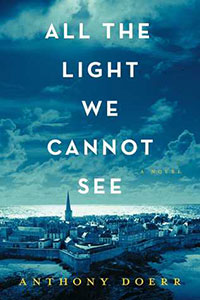 Goodreads: Good luck to you tomorrow night.
Goodreads: Good luck to you tomorrow night.
Anthony Doerr: Thank you. I have to wear a tuxedo. That's for me the most stressful part.
GR: Do you freak out for these things where you have to behave yourself?
AD: Yeah—which fork to use. I don't dress like a slob at home, but I also don't usually wear a tuxedo. So I rented one off the Internet. It's not quite as nice as it looks in the photographs.
GR: So are you a socially affable guy? Or do you get nervous around people?
AD: The fiction prize is the last thing. It's like a three-hour deal. So I probably will be a wreck. I'll be sober the whole time. I don't mind meeting a group of readers in a library and talking to them. Wearing a tux and talking to powerful people is a little scary.
GR: All the Light We Cannot See was ten years in the making?
AD: That's correct.
GR: Did you ever give up along the way? Ten years is a long time.
AD: Man, yeah. I've been reflecting on that this week with the National Book Awards. There were probably five times when I was in tears. I couldn't figure a way out. Why did I have to make it so complicated? The structure's complicated. There are no American characters in it. I'm not blind. Almost all my primary sources were in languages I cannot read. It's almost like, Why did I make this so difficult for myself? But that happens. But you use your experience and think, today's a horrible day, but if I sleep and wake up, maybe tomorrow I'll write my way out of some of these problems.
GR: How distracted are you when you're writing? Do you have certain rules?
AD: Yes. I'm pretty distractible. I think the human mind likes to be distracted. When you're writing historical fiction, you can excuse it by calling it research. If I have Marie going to a dresser, then I think, What would the top of a dresser look like in 1938? Then you start going to photographs online, and then suddenly an email pops up or something. So I use this ridiculous little program called Freedom. I put these hugely ambitious numbers in there, like I'll just do this for 300 minutes. Usually I go for a walk in the middle of it because I need that. I'm just interested in a lot of different things. It's not like I'm being naughty and watching videos of celebrities or something. But I could probably do better without going on the Web at all.
GR: It seems to me that the motivating question of the book is, "Don't you want to be alive before you die?"—a theme throughout your work.
AD: Yeah, no question. My mom was a science teacher. She was a big part of my life. I went to the same school where she taught. I drove with her pretty far. We lived in rural Ohio in a tiny town outside of Cleveland called Novelty. I was at a Montessori school in Cleveland Heights. So we drove 50 minutes to school each way. She was always teaching us all kinds of things. I remember very clearly geologic time being one of the big lessons she taught us. She even had us take toilet paper rolls and unroll them and had us map out the various eras, like Cambrian, and figure out where humans would fit on this toilet paper timeline of the Earth.
You realize, of course, that human life goes in the last square—and really goes in the last quarter of the last square. And your life can't really even fit if you draw this microscopic line down the final edge of the final square of toilet paper. I remember those lessons make you feel small. Then they make you feel—what an amazing thing we get to be on this Earth. I should take advantage of this tiny spark of light we have in our lives before it's over. Start thinking of all the species that have lived on Earth; 99 percent of them have gone extinct. Why do we think humans will be different? That was part of my worldview growing up: We're only here a short time. I don't really believe in reincarnation, so this is our one chance to kinda help people and see things and taste and fall in love with everything you can. So I think that's part of everything I work on.
GR: You seem so facile in your writing about science. Do you attribute that to the influence of your mom, too?
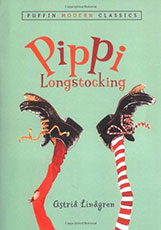
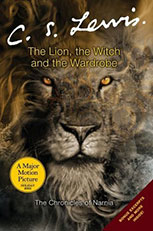 AD: Absolutely. My oldest brother went to MIT on a full ride when he was 17. He's an electrical engineer. He was building these rudimentary video games for us 30 years ago. It was encouraged in our family to tinker around with things. I had a little radio kit. But also Mom would ask us—we were that nerdy family—the Latin names for beetles in our yard. She filled the house with books: J.R.R. Tolkien. The Chronicles of Narnia. Pippi Longstocking. I'm sure I'm romanticizing it now, but it seemed like a perfect childhood. I grew up, thankfully, in the last era before video games. As I'm raising my sons now, [video games] have so much power over them. I don't think video games are evil. It's just that we didn't have as much to do. We were outside all the time. We were learning about the natural world and physical sciences. It was just part of growing up.
AD: Absolutely. My oldest brother went to MIT on a full ride when he was 17. He's an electrical engineer. He was building these rudimentary video games for us 30 years ago. It was encouraged in our family to tinker around with things. I had a little radio kit. But also Mom would ask us—we were that nerdy family—the Latin names for beetles in our yard. She filled the house with books: J.R.R. Tolkien. The Chronicles of Narnia. Pippi Longstocking. I'm sure I'm romanticizing it now, but it seemed like a perfect childhood. I grew up, thankfully, in the last era before video games. As I'm raising my sons now, [video games] have so much power over them. I don't think video games are evil. It's just that we didn't have as much to do. We were outside all the time. We were learning about the natural world and physical sciences. It was just part of growing up.
The other thing about having Mom teach us stuff—I always felt it's artificial that when you're 18 years old and go to college, you need to choose between the arts and the sciences. One end of campus is physics and chemistry, and the other end is Wordsworth and Hawthorne. Those are just ways to try to make sense of what it's like to be on Earth. What's wrong with being interested in both?
GR: What's the genesis of All the Light We Cannot See?
AD: I was at Princeton for a year and had just finished a novel. So this was more than ten years ago. And I was coming up to New York on the train and had a notebook opened on my lap. I was on my way to talk to my editor about the novel coming out but was searching for new ideas, and the guy in the seat in front of me was talking on a cell phone. As we were coming into New York, the train starts dipping underground and we approached Penn Station—and his call dropped. Which I think is normal. But he got very angry and started swearing and bashing his phone, etc., and after I stopped thinking about my safety for a second, I started thinking about what he was forgetting, really what we're all forgetting. Here I am, standing in a hotel room in New York, talking to you in Boston. We're just using these tiny little radios in our phones. We're communicating over this vast distance. For the history of humans that was impossible. So that day, before I had any idea what I was doing, I wrote down the idea about all this electromagnetic radiation we can't see that's flying through walls and through buildings. Through floors and carrying human communication. So, I thought, I wanted to tell a story in a time in history when radio had a lot of power. When hearing the voice of a stranger or a loved one in your home, in your ear, was a magical thing. So I knew I'd have to go back to World War I or World War II and try to remember that.
Then I started reading about radio transmissions and propaganda in Nazi Germany. It really started with how you can map the level of violence of the genocide in Rwanda by the strength of radio transmissions there. Literally disc jockeys were fomenting violence on the radio. You could tell by the level of reception how violent it was there. That was such a vivid illustration of the power of radio. So I started to read old broadcasts that the Third Reich put out to their citizens, and that got me started.
GR: How did you decide on your setting in France?
AD: I was on a book tour in France. I had been to France before but am a full-fledged American idiot. We were in Brittany. First of all, I thought Brittany was in Britain. We pull in to this town called Saint-Malo. It was dark when we got there. I knew we were by the coast. There are a lot of these interminable dinners. After two hours and the cigarettes come out and people ask you, "Anthony tell me about the meaning of the owl on page 200 of your book," I snuck out the back door to go for a walk. I climbed a flight of stairs and found myself on top of the ramparts. You know, the wall on top of the ramparts, this parapet that surrounds Saint-Malo. I thought, Oh, my gosh. The moon was out. It's low tide. The sand is gleaming off to your right. To your left you're maybe three stories up, you can see into the third-story windows of all these granite mansions. It's beautiful, with old houses. The next day off, I got to walk around this whole city and started walking with my French editor and said, "Look how old everything is." He said, actually, this town was almost entirely destroyed by American bombers in 1944. That's when I thought, OK, I've got a setting. Then I had to go back a couple of times after that and start learning the history of the place.
GR: What kind of research did you do about blindness?
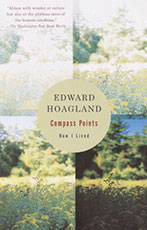
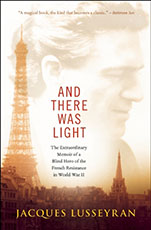 AD: I read lots and lots of memoirs—anything about someone going blind or had been blind, especially somebody who had lost his or her sight as a child. I knew I wanted her to have some visual memory. My son did blindfold me and walk me around downtown Boise, which was actually a sort of harrowing experience, reminding me that you truly are disabled in lots of ways. But primarily just reading: And There Was Light by a guy named Jacques Lusseyran. A writer named Edward Hoagland has this beautiful memoir [Compass Points]. He lost his sight as an older man. He started walking in New York City, and everything he saw was radiant because he knew he wouldn't see it again. It's harrowing. Sad. Oliver Sacks writes about blindness in lots of different ways.
AD: I read lots and lots of memoirs—anything about someone going blind or had been blind, especially somebody who had lost his or her sight as a child. I knew I wanted her to have some visual memory. My son did blindfold me and walk me around downtown Boise, which was actually a sort of harrowing experience, reminding me that you truly are disabled in lots of ways. But primarily just reading: And There Was Light by a guy named Jacques Lusseyran. A writer named Edward Hoagland has this beautiful memoir [Compass Points]. He lost his sight as an older man. He started walking in New York City, and everything he saw was radiant because he knew he wouldn't see it again. It's harrowing. Sad. Oliver Sacks writes about blindness in lots of different ways.
GR: You've said in interviews that you've grown more comfortable as a writer in dealing with uncertainty, that you're sort of fumbling around in the dark.
AD: [Bursts out laughing.]
GR: That didn't come out right. I meant that you sound very Zen to me.
AD: I think when you're getting started as a writer or an artist, you feel like, "Oh, everybody knows what they're doing except for me." You read something perfect, like Virginia Woolf or Cormac McCarthy, and you think, "That must have come out perfectly." Then as you get older, you start to realize, "No, these are artists who have painstakingly hidden all the work they've done, and the false starts and the ten years of nerves." It's still hard, but I just have to allow myself to mess up and fail and think tomorrow I can straighten this out, but today I just have to get through this and show up at the desk. Obviously there are days when you're moving much more quickly and solving problems. But, really, artistic creation is kind of a matter of showing up.
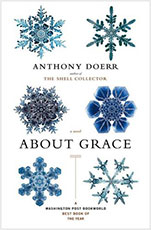 GR: Goodreads member Barbara Stark-Nemon writes, "A theme that struck me in both About Grace and in All the Light We Cannot See is how light and grace inextricably bubble up in the midst of banality, deprivation, imbalance, and even downright evil. Do you get pushback from readers who can't reconcile the duality in characters such as David Winkler and Werner Pfennig? Their fatalistic and harmful actions represented with evidence of their essential good?"
GR: Goodreads member Barbara Stark-Nemon writes, "A theme that struck me in both About Grace and in All the Light We Cannot See is how light and grace inextricably bubble up in the midst of banality, deprivation, imbalance, and even downright evil. Do you get pushback from readers who can't reconcile the duality in characters such as David Winkler and Werner Pfennig? Their fatalistic and harmful actions represented with evidence of their essential good?"
AD: Wow. Go, Barbara. I think particularly with David Winkler, who's the "hero" of About Grace, he's basically an antihero. He's very interested in the natural world and makes a very poor decision. He's not the kind of person Ben Affleck or Kurt Russell will play in a movie. Maybe Ben Affleck is getting a little more complicated now. But I feel like those people are very interesting to me—introverts. Marie is probably a purer soul. Werner is not; he's just making these terrible decisions. I just hope they're maybe decisions readers can understand why he's made them.
I don't know if "pushback" is quite what I'd call it. Yeah, you sometimes see reviews you don't totally agree with. But for the most part readers have been forgiving of Werner. I was very, very worried in anticipating that people would say I was trying to make a Nazi sympathetic. That's a lot of the reason I invented this much more static character named Von Rumpel, to give the reader a sense of a Nazi they're more used to seeing. It's a morally complicated situation. He has limited resources and had no parents. Would any of us have made different decisions than him? Would we have been more loyal to our sister? Would we have stood up and said, "This is wrong." I don't know.
The reason the book took me so long is, the research was so harrowing. I started wondering, "Would I have hidden families in my basement?" I don't know if I would have.
GR: Goodreads member Sue writes, "The song 'Claire de Lune' is woven beautifully into the dual narratives of All the Light We Cannot See. For me, personally, the song's presence in the story is itself a source of illumination. How did you come about choosing to include that specific song in the story?"
AD: That's such a nice question. Wow. She's right. That stuff is all intentional. I love the idea that moonlight is the title of it—that I'm trying to play with all these different metaphors of light. While I was in Rome, I was drafting the novel in 2005 and started listening to a lot of Debussy. It's a pretty sentimental song, but it works on me every time, especially just a straight piano version. I like the title. It felt like this lonesome light wandering through the woods. Early on I had attached that piece to the book.
GR: Goodreads member Bianca asks, "How did you decide on the structure for the story? Did you write it using a linear timeline and then mash up the past and present later or did you write it in that sequence from the beginning?"
AD: Definitely the latter. I knew I wanted to write these two narratives of Marie and Werner, and then, to make my life more complicated, I wanted to try to place the two narratives of everything from 1938 to August of 1944 together with this weeklong siege. I felt like if I place the novel only in the siege, the story would have been too clumsy and top heavy with the backstory. You understand that eventually the allies are going to clear this town of Germans. Here's one little story, one little pocket of light you don't know about, hopefully. I can announce to the reader that I know that she knows most of these things, then I can start winding back and forth. Then I thought it might create some narrative momentum and suspense. I knew it was a risk. It caused a lot more work for me, but it was also fun. Early on I was playing with puzzles, these little puzzle boxes our father would make. I thought, "What if I tried to interweave all these pieces the way a puzzle comes together?"
GR: Goodreads member Kay asks, "What made you pick the ending you did?"
AD: That's an easy question in many ways. World War II is still a memory for that last generation of people who won't be around in 15 years. There will be nobody left on Earth who will remember that war. I knew at least one of the protagonists lives to the present time. We see kids playing video games about WWII. So I wrote a scene pretty early on where a grandson of Marie would have a game, like my sons have a game—which is both a wonderful blessing and really sad, that that's what the experience is—you can die and be reborn and look up from your screen and the war is over. I had that scene pretty early, that there might be a woman in her eighties or nineties for whom all this stuff is a memory. I think it's important to remember that that cult of personality that got built in Germany is not something that could never happen again. All it takes is a very powerful propaganda tool, like radio, and a populace that's maybe struggling for lots of different reasons.
GR: Goodreads member Narjis Naqvi writes, "You describe the feelings of the blind girl so well. I myself am disabled, not blind but with a physical disability. So I felt so close to Marie Laure. I want to know how you understood the feeling of a person who has something less than others? Do you have contact with someone like this?"
AD: Oh, so sweet. The immediate answer is my wife's older sister is disabled. You see, when you're around her, her disability is a gift in many ways. Sure, it tries everybody's patience once in a while, but she's amazing. Marie is a very curious person. Intellectual curiosity is really a motif throughout the book. How can you be curious about the world, even at times when the world doesn't want you to be curious. Marie wants to learn and learn.
GR: What books and authors have most influenced you?
AD: Oh, man. Cormac McCarthy. Melville's Moby-Dick. All of Virginia Woolf, especially her notebooks and the way she pays attention to the world, translates experience into language. I love the writer Andrea Barrett, particularly because she writes about science so beautifully. She was really the first writer to show me that if you're interested in science, you can tell stories about it. It doesn't have to be a mutually exclusive kind of thing.
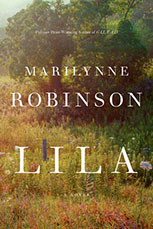 GR: What are you reading now?
GR: What are you reading now?
AD: I'm finishing Lila by Marilynne Robinson because I wanted to finish it before I see her tomorrow night.
GR: Are there rituals that you employ to write?
AD: Yeah, I write in the morning. That's when I feel my brain is freshest. There are some rituals: I wear a pair of chain saw operator earmuffs.
GR: What? For real?
AD: Yeah, you know those giant things? For real. Even though my office is quiet, I find that putting those things on, I don't know, it's just become a thing. My earlier offices were noisy, but I just put them on, and I can concentrate. They're very effective. You can't really hear somebody if they're standing in front of you talking. Weird.
published at Goodreads


